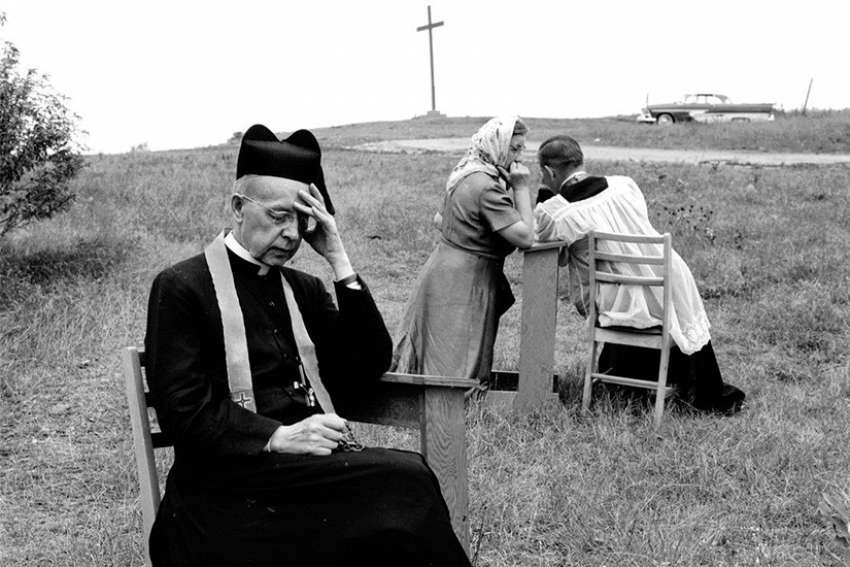After a storm at sea, Jonah was tossed overboard and swallowed by a huge fish. After three days, he was spewed forth still alive but chastened — he got the message. With great relish, he marched through Nineveh proclaiming that it would be destroyed in 40 days.
Nineveh was the Assyrian capital, and the Assyrians were legendary for their cruelty and lust for conquest. Israel and other nations had suffered greatly at their hands. Jonah could hardly wait to see the fireworks. But the unthinkable happened — they took his message to heart and, at the orders of the king, proclaimed fasting and sackcloth throughout the city. God relented and withdrew the threat of destruction.
Rather than rejoicing at their repentance, Jonah sulked and pouted. He was angered and scandalized by God’s mercy. After all, the Assyrians deserved to be wiped out. He had been reluctant to take on his mission because he feared that God would do something like this. But God rebuked him by pointing out the Assyrians were human beings, too. God had care and concern for them, just as God did for the Israelites.
This story speaks directly to our own time. So many yearn for the destruction — real or metaphorical — of their perceived enemies. It is so easy, and at times emotionally satisfying, to demonize them. But often these enemies are just those that disagree with us or are different in some way.
God’s ways and thoughts are not ours. We should hope and work for a change of mind and heart of our “enemies,” but at the same time, our own, too. God never gives up on us and we should not give up on anyone else. The call to repentance is for all, not just “others.”
Paul urged his followers to keep a bag packed by the front door. He was convinced that the end was near and that the time had grown short. His advice was to live lightly and not become attached to anything. After all, it would soon be swept away.
We do not live with such an urgent apocalyptic sense today so Paul’s advice might seem obsolete. But recent history has shown us how delicate and tenuous everything is — the economy, political structures, the environment, education and even religious institutions.
Nothing should be taken for granted; great care should be taken with our decisions and our actions. To aid us, we can keep constantly in mind the only reason we are all here: to love and serve God and one another.
Jesus began His public ministry with a challenge and a proclamation. The long waiting period was over and the exact moment had arrived for God’s intervention in human history. Everything was in place.
The reign of God had come near — God was approaching the world and its inhabitants in a new way, forging a new and deeper relationship. God was in control of the world and humanity’s spiritual progress, not earthly powers or institutions.
For this to be effective, a new consciousness was required. Repentance — metanoia — meant a fundamental change in mind and heart. Old ways of thinking needed to be left behind, preparing people for an infusion of wisdom and divine teaching fit for the coming age.
All this was good news indeed, but people then, as they do now, ask for evidence. At times, this evidence seems lacking, making faith a constant struggle. The fundamental act of faith then and now is to believe in the guiding and loving presence of God in our world even in the midst of its darkness and terror. Affirming truth, beauty, goodness, justice, kindness and hope in such circumstances is a courageous and transforming act and the foundation of God’s reign.
It was a challenge then, and it is a challenge now. Despair and cynicism are ever-present temptations. Our commitment and ability to “believe in the good news” in a credible and life-giving manner will enable our world and its people to endure the storms and flourish.


